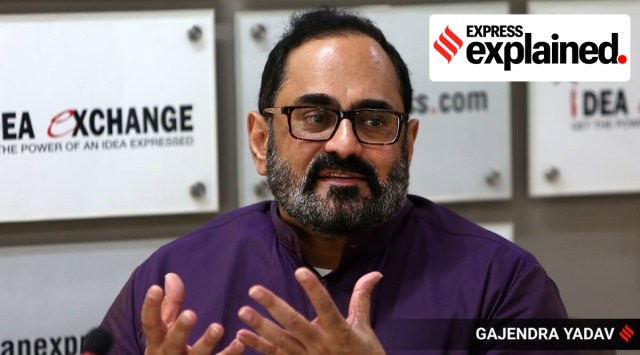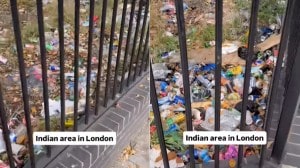Content marked as such by the body will have to be taken down by online intermediaries if they wish to retain their ‘safe harbour,’ which is legal immunity they enjoy against third-party content.

On Thursday, the Ministry of Electronics and IT notified amendments to the Information Technology Rules, 2021, which allows the Ministry to appoint a fact-check body which will take a call on whether online information related to the Central Government is accurate.
Story continues below this ad
The final rules come months after the Ministry, in January, had first proposed that any piece of news that has been identified as “fake” by the fact-checking unit of the Press Information Bureau (PIB) – the Centre’s nodal agency to share news updates – will not be allowed on online intermediaries. However, the final draft has removed the reference to PIB.
The proposal had earlier drawn a lot of criticism. The Editors Guild of India had said that the “determination of fake news cannot be in the sole hands of the government and will result in censorship of the press”. The News Broadcasters & Digital Association said it will “have a chilling effect on the media” and should be withdrawn.
What do the final rules say?
On paper, what the final rules now say is that an online intermediary – including social media platforms like Facebook, YouTube and Twitter and internet service providers like Airtel, Jio and Vodafone Idea – should make “reasonable efforts” to not host content related to the Central Government that is “identified as fake or misleading” by a “fact check unit” that may be notified by the IT Ministry.
Story continues below this ad
In essence, if any piece of information is marked as fake by the upcoming fact check unit, intermediaries will be required to take it down, failing which they would risk losing their safe harbour, which protects them from litigation against third-party content. Social media sites will have to take down such posts, and internet service providers will have to block URLs of such content.
What are the concerns with the new rules?
Civil society groups have said that the rules could hamper speech online. In a statement, the Delhi-based digital rights group Internet Freedom Foundation said, “The notification of these amended rules cement the chilling effect on the fundamental right to speech and expression, particularly on news publishers, journalists, activists, etc. The fact check unit could effectively issue a takedown order to social media platforms and even other intermediaries across the internet stack, potentially bypassing the process statutorily prescribed under the Section 69A of the IT Act, 2000”.
The global rights group Access Now said that while the notified amendment, unlike the previous proposal, does not designate the Press Information Bureau as the appropriate fact checking agency, its ultimate effect is the same. “It renders government agencies, as chosen by MeitY, the final arbiters of truth online,” it added.
What has the Centre said on concerns around censorship?
Story continues below this ad
Minister of State for Electronics and IT Rajeev Chandrasekhar “assured” that the government-backed fact check body will work in a credible way, in a bid to address the concerns.
“When we notify the agency, we will certainly be very clear that any doubts in the mind of people that the power will be misused on behalf of the government will be addressed when we notify the agency. There will be a list of dos’ and don’ts that it will have to adhere to,” he told The Indian Express.
“I will assure you that it will not be business as usual, where it will be a government department type of an organisation. We certainly want to conduct fact checks in a credible way and that is not just for the government but also for the intermediary that is going to depend on that particular fact check,” he added.








































